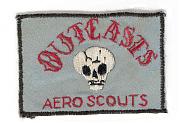This is how the Normandy invasion would be reported today. Sounds familiar.
June 6, 1944. -NORMANDY- Three hundred French civilians were killed and thousands more wounded today in the first hours of America's unilateral invasion of continental Europe. Casualties were heaviest among women and children. Most of the French casualties were the result of artillery fire
from American ships attempting to knock out German fortifications prior to the landing of hundreds of thousands of U.S. troops.
Reports from a makeshift hospital in the French town of St. Mere Eglise said the carnage was far worse than the French had anticipated and reaction against the American invasion was running high. "We are dying for no reason," said a Frenchman speaking on condition of anonymity.
"Americans can't even shoot straight. I never thought I'd say this, but life was better under Hitler."
The invasion also caused severe environmental damage. American troops, tanks, trucks and machinery destroyed miles of pristine shoreline and thousands of acres of ecologically sensitive wetlands. It was believed that the habitat of the spineless French crab was completely wiped out, threatening the species with extinction.
A representative of Greenpeace said his organization, which had tried to stall the invasion for over a year, was appalled at the destruction, but not surprised. "This is just another example of how the military destroys the environment without a second thought," said Christine Moanmore. "And it's all about corporate greed."
Contacted at his Manhattan condo, a member of the French government-in-exile who abandoned Paris when Hitler invaded said the invasion was based solely on American financial interests. "Everyone knows that President Roosevelt has ties to big beer," said Pierre LeWimp. "Once the German beer industry is conquered, Roosevelt's beer cronies will control the world market and make a fortune."
Protestors said America's aggressive actions were based in part on the assertions of controversial scientist Albert Einstein, who sent a letter to Roosevelt speculating that the Germans were allegedly developing a secret weapon, a so-called "atomic bomb." Such a weapon could produce casualties on a scale never seen before and cause environmental damage that could last for thousands of years. Hitler has denied having such a weapon and international inspectors were unable to locate such weapons even after spending two long weekends in Germany.
Shortly after the invasion began reports surfaced that German prisoners had been abused by Americans. Mistreatment of Jews by Germans at so-called "concentration camps" has been rumored but so far remains unproven.
Several thousand Americans died during the first hours of the invasion and French officials are concerned that uncollected corpses pose a public health risk. "The Americans should have planned for this in advance," they said. "It's their mess and we don't intend to clean it up."

















 . The way many people react to what politicians and corporations say is another great example of the phenomenon; phrases like "unavoidable readjustment in the economy", "rightsizing", "free trade", etc. are good examples.
. The way many people react to what politicians and corporations say is another great example of the phenomenon; phrases like "unavoidable readjustment in the economy", "rightsizing", "free trade", etc. are good examples.
Bookmarks